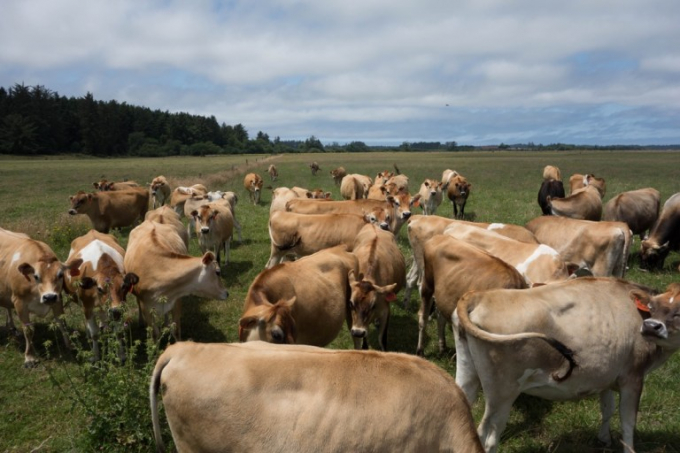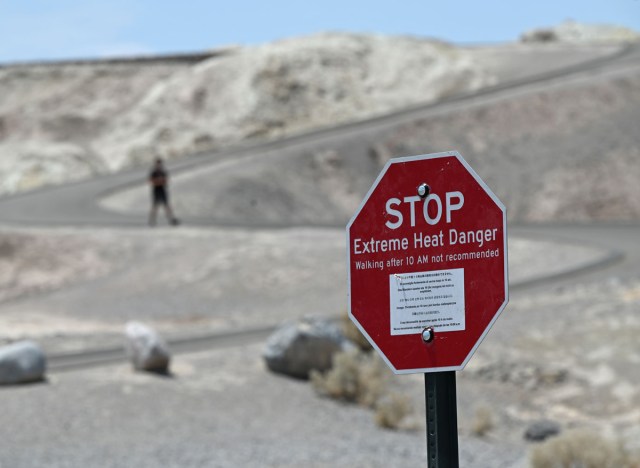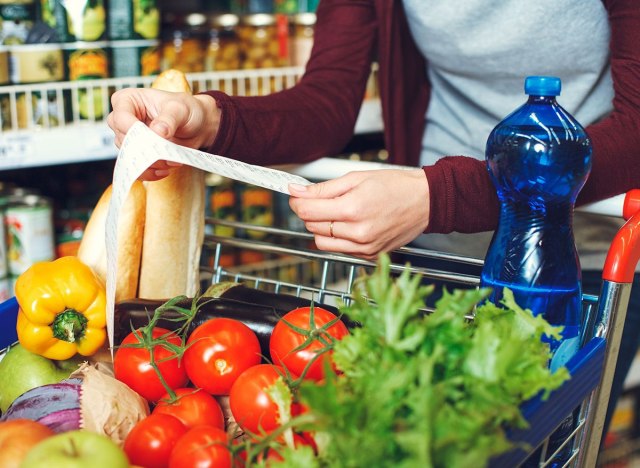November 27, 2025 | 19:32 GMT +7
November 27, 2025 | 19:32 GMT +7
Hotline: 0913.378.918
November 27, 2025 | 19:32 GMT +7
Hotline: 0913.378.918

The drought is impacting farmers, livestock, and vegetation. Photo: Getty.
After a year of skyrocketing grocery prices in the backdrop of a global pandemic, we're not fully in the clear yet. In fact, grocery prices are sky-high right now.
Nevertheless, grocery sales for the week ending June 19 were reportedly up by 15% compared to 2019. Droughts, high grain prices, and shipping delays certainly aren't helping matters. But could another problem raise food prices even more? Let's take a look. (Related: This Is the Best Supermarket in America, New Survey Says).
The West is experiencing an "exceptional drought."

Seven western states—Arizona, California, Idaho, Nevada, New Mexico, Oregon, and Utah - are currently experiencing an "exceptional drought.". Photo: Getty.
Seven western states - Arizona, California, Idaho, Nevada, New Mexico, Oregon, and Utah—are currently experiencing an "exceptional drought." In some places, temperatures are up to 17 degrees above average, and the heat is not only drying out the soil and plants but also putting a strain on water resources, according to the U.S. Drought Monitor. In Oregon, certain conditions are "among the driest going back to 1895."
Related: To get all of the latest grocery store news delivered right to your email inbox every day, sign up for our newsletter!
The severe weather is affecting farmers in several ways.
The drought is impacting farmers, livestock, and vegetation. Per the New York Times:
"In New Mexico, farmers along the Rio Grande were urged not to plant this year. Crop failures have been reported in Colorado and other farming areas. The level of Lake Mead, the huge reservoir on the Colorado River, is so low that Arizona, Nevada, and other states will likely face cutbacks in supplies. In North Dakota, ranchers are trucking water and supplemental feed for their livestock because the rangelands are so dry and the vegetation is stunted."
What does this mean for grocery prices?
In a move to combat rising prices, grocery stores are stockpiling inventory. Walmart, meanwhile, has pledged to keep costs low this summer in order to woo customers who are eager to get out of their homes more than a year after the start of the pandemic. However, the Wall Street Journal previously reported that executives anticipate "the highest price increases in recent memory."
What grocery staples are likely to be impacted?

A woman looking at grocery receipt. Photo: Getty.
"While high inflation for some goods and services might prove to be transitory, the run-up in prices for food staples such as beef, pork, and milk might be extended by the effects of severe drought," The Journal's Danny Dougherty and Peter Santilli wrote earlier this month.
(Eatthis.com)

(VAN) A new study reveals how the simultaneous effects of ocean acidification, salinity and loss of oxygen are making the world more fragile.

(VAN) Hopes are growing that the creation of the first 3D turkey gut model could be a turning point in the battle against the virulent blackhead disease.

(VAN) Tyson, America’s biggest meat supplier, plans to shutter one of its largest beef processing plants as the industry continues to struggle with low cattle supplies and political pressure from Washington.

(VAN) New FAO study shows how digital solutions are empowering farmers and fishers to prevent losses and build resilient agrifood systems.

(VAN) Brazil's COP30 presidency pushed through a compromise climate deal on Saturday that would boost finance for poor nations coping with global warming but that omitted any mention of the fossil fuels driving it.

(VAN) Poultry farmers in the UK have been warned that they could face one of the worst winters yet for bird flu.

(VAN) Prices of main-crop paddy have risen sharply, with jasmine rice hitting 16,100 baht per tonne — the highest level in years.